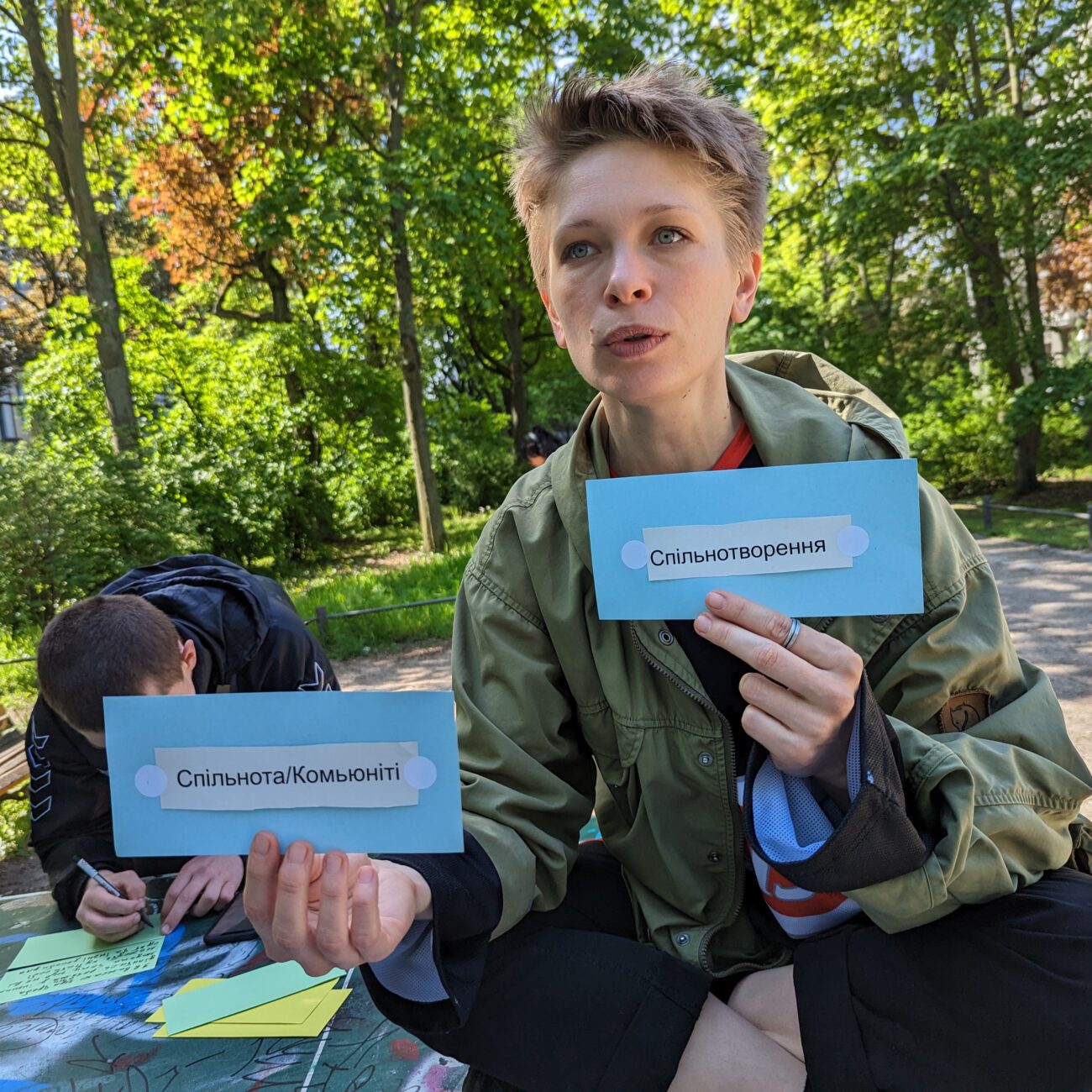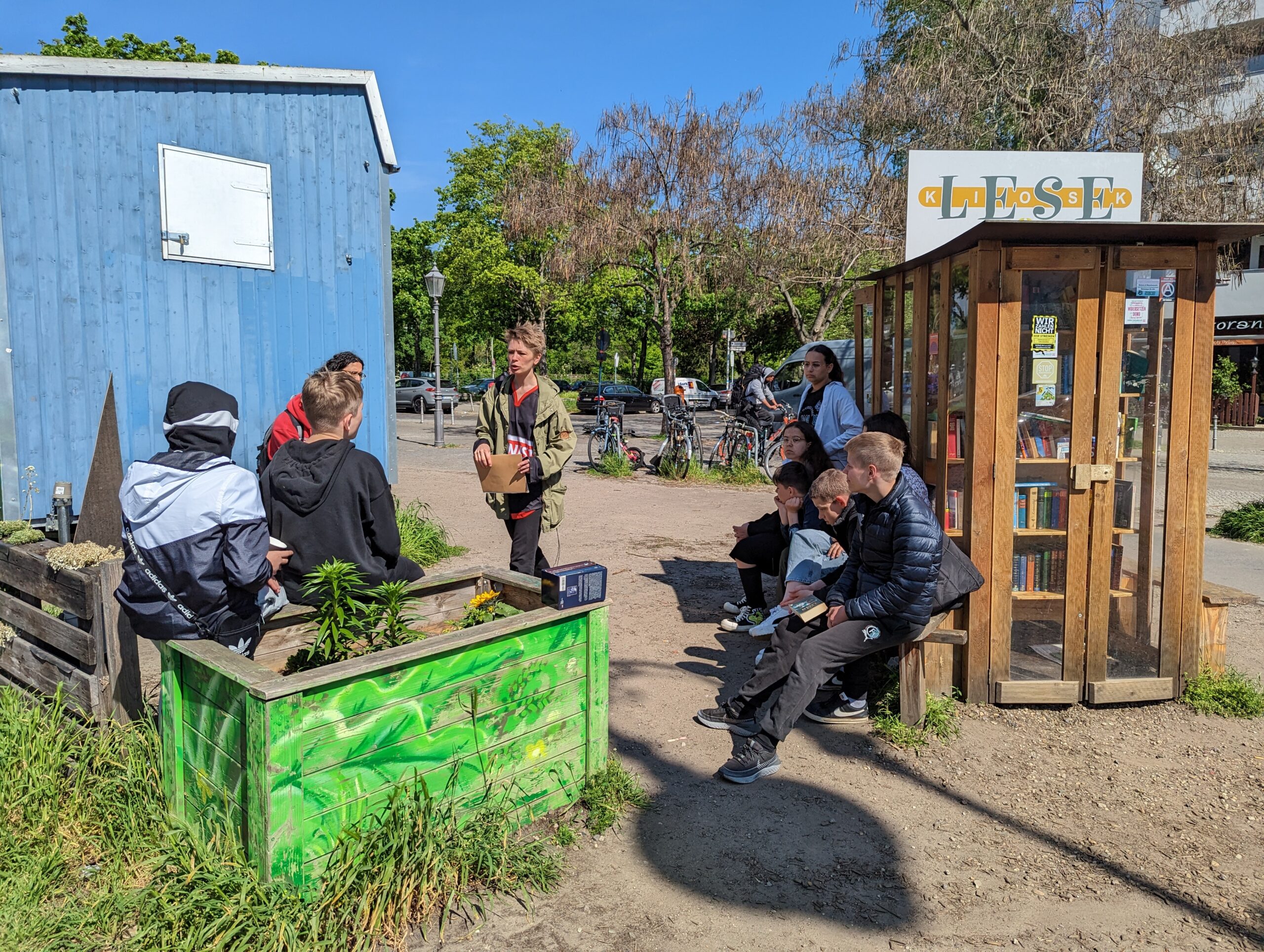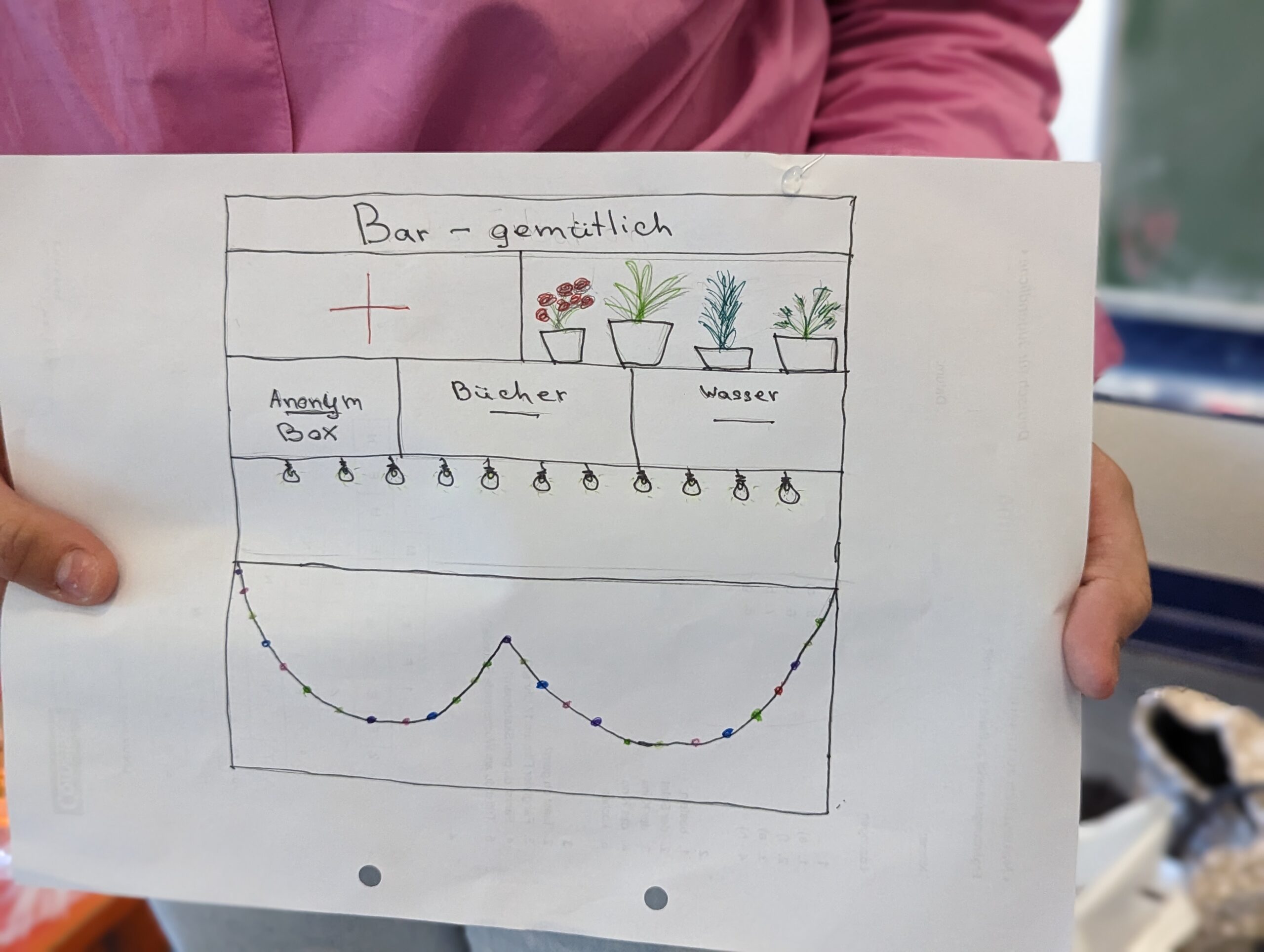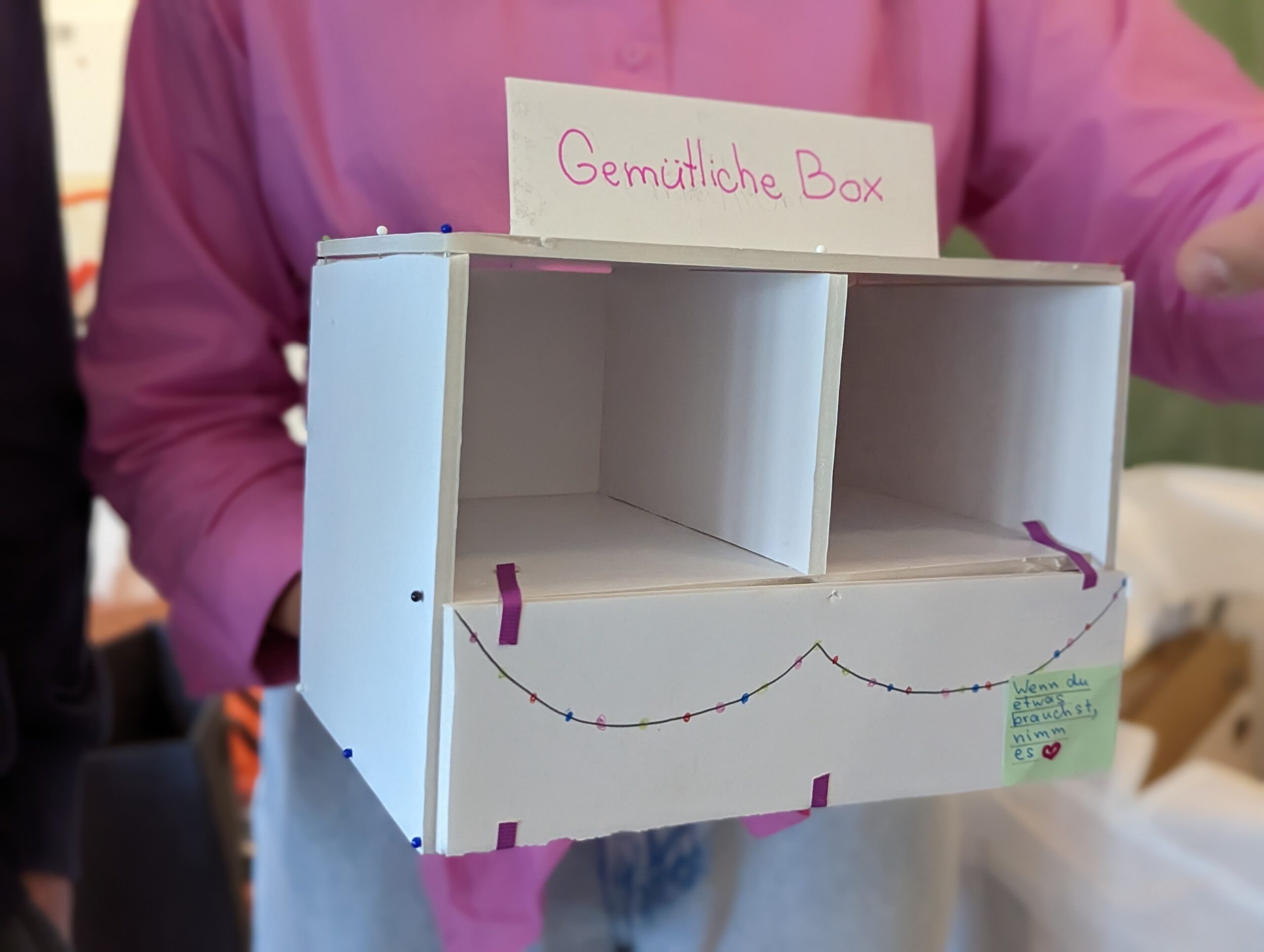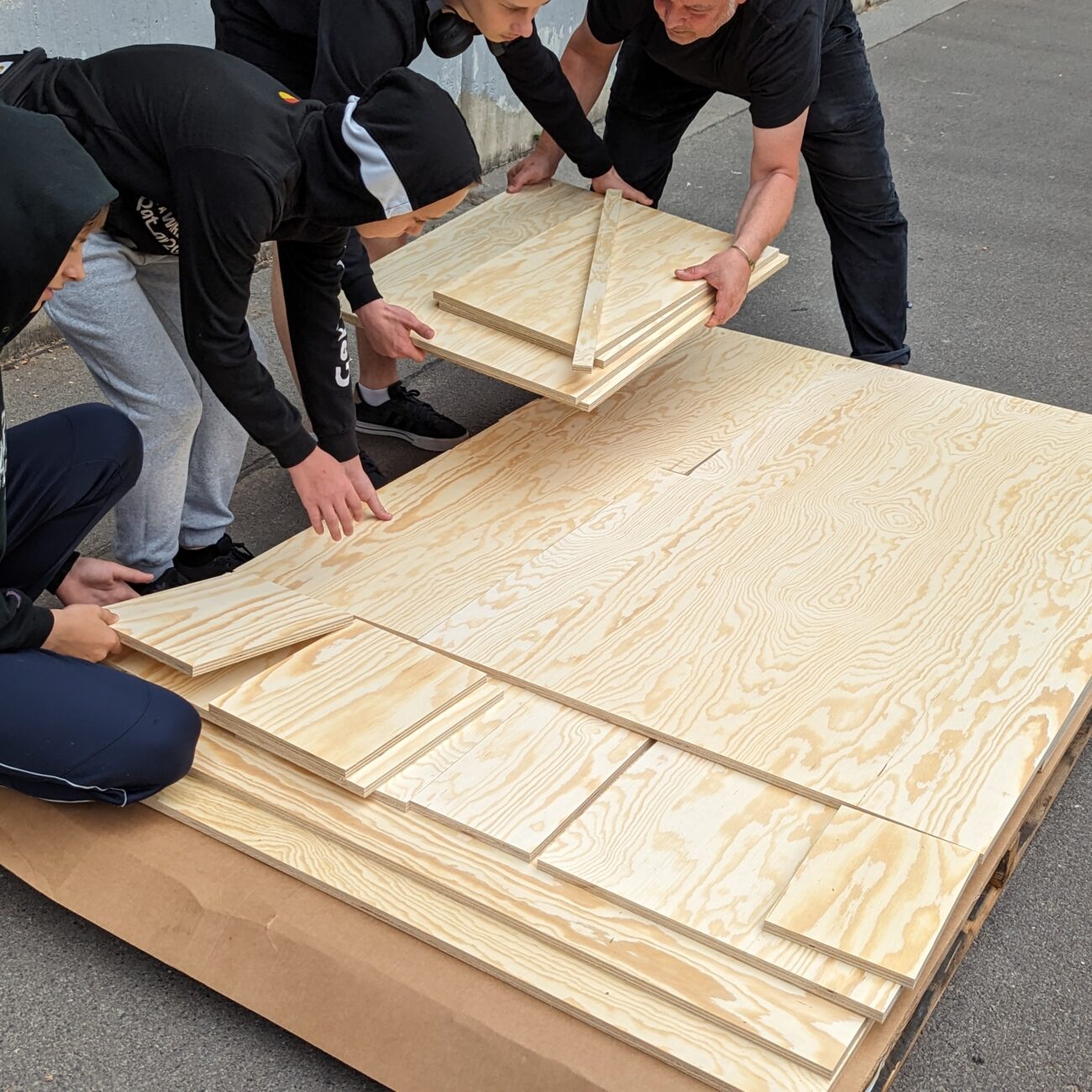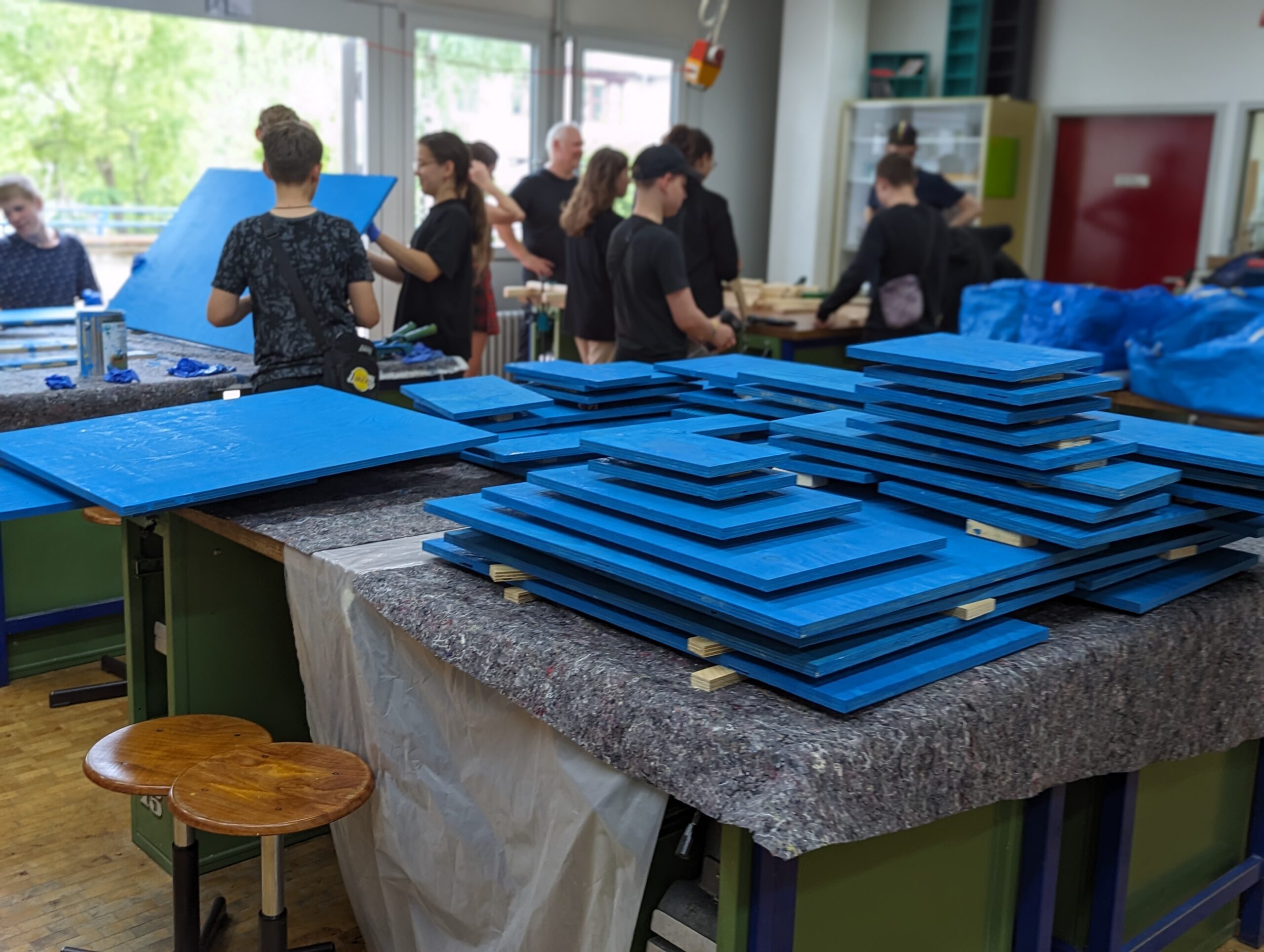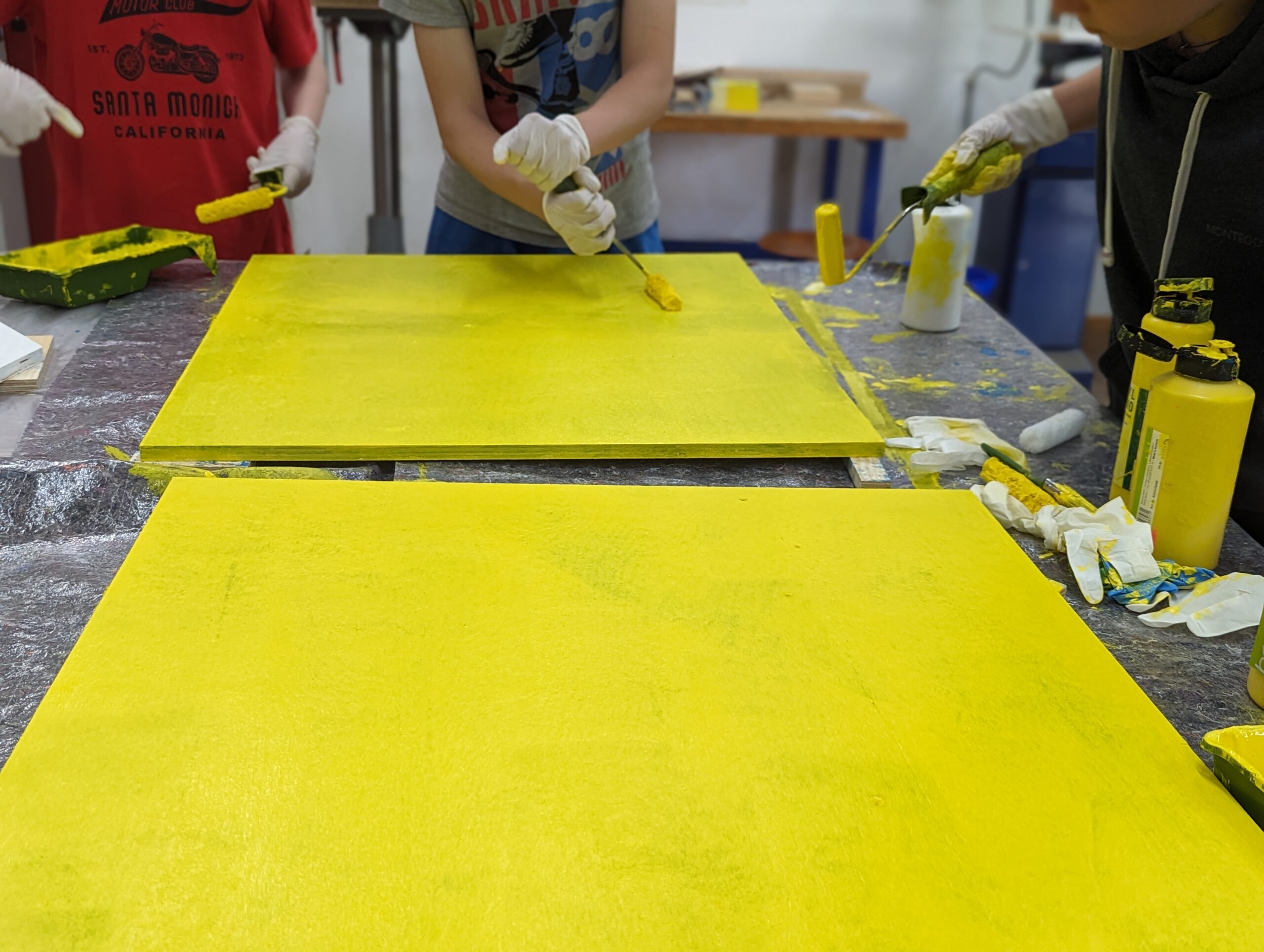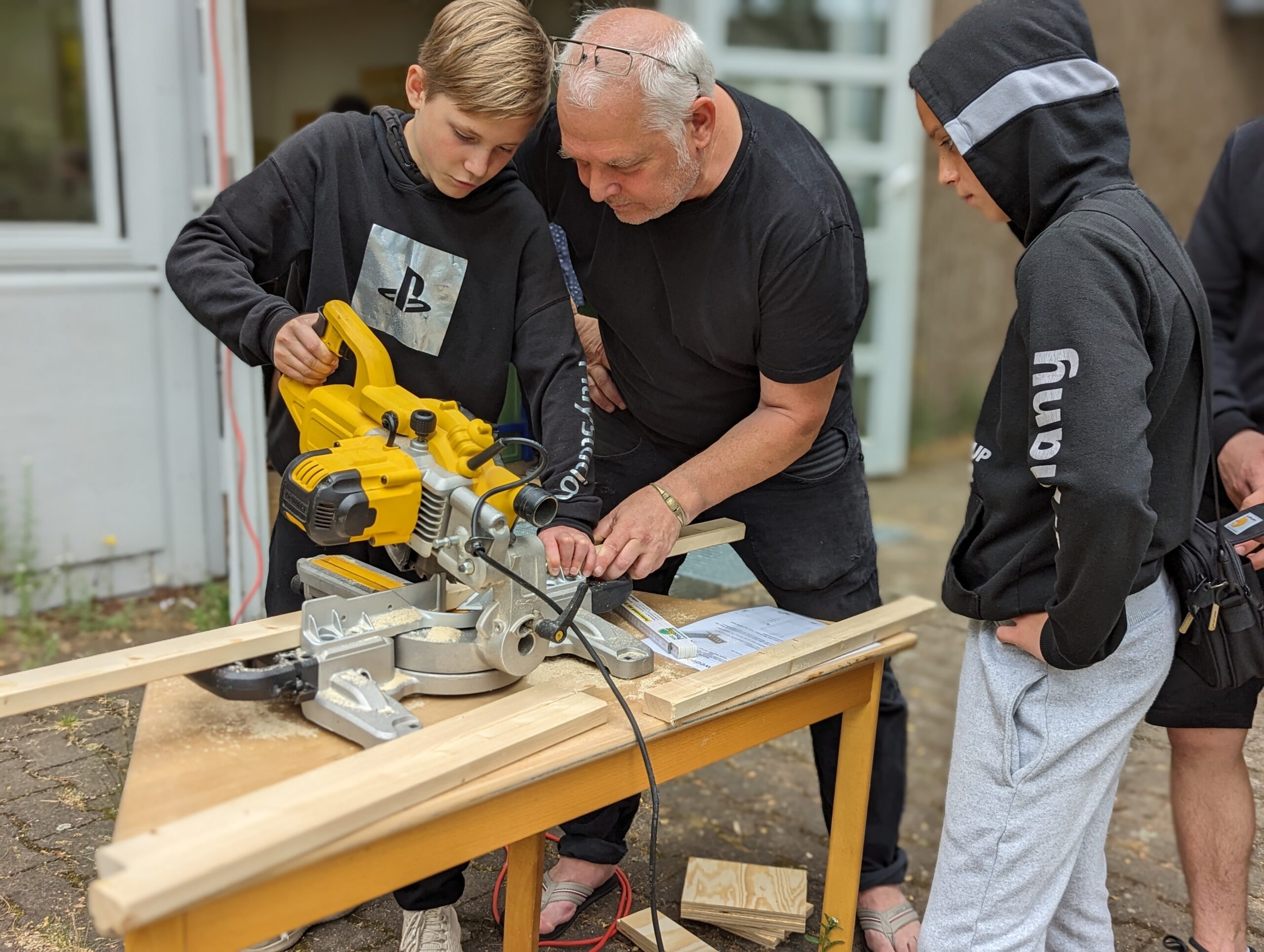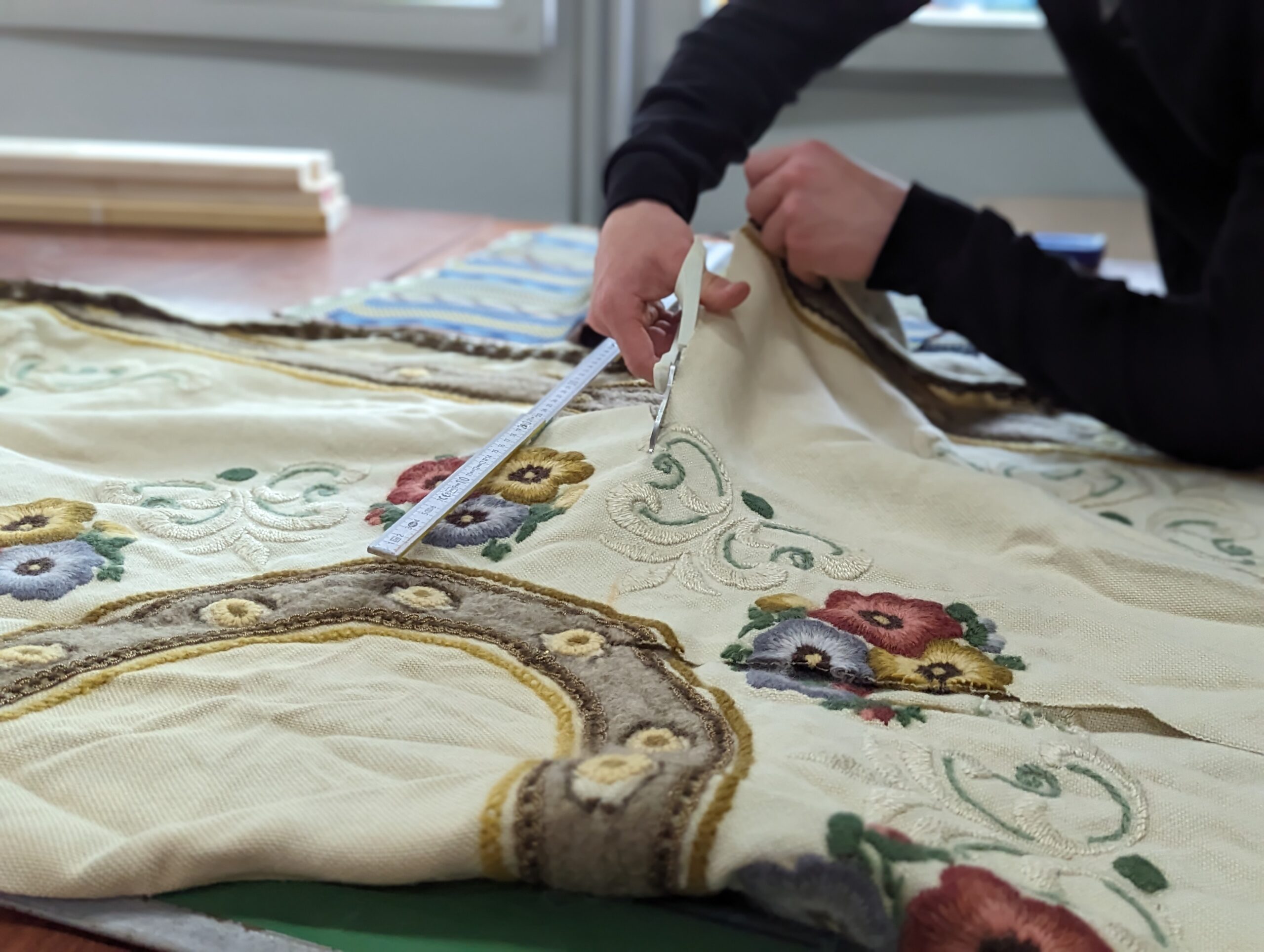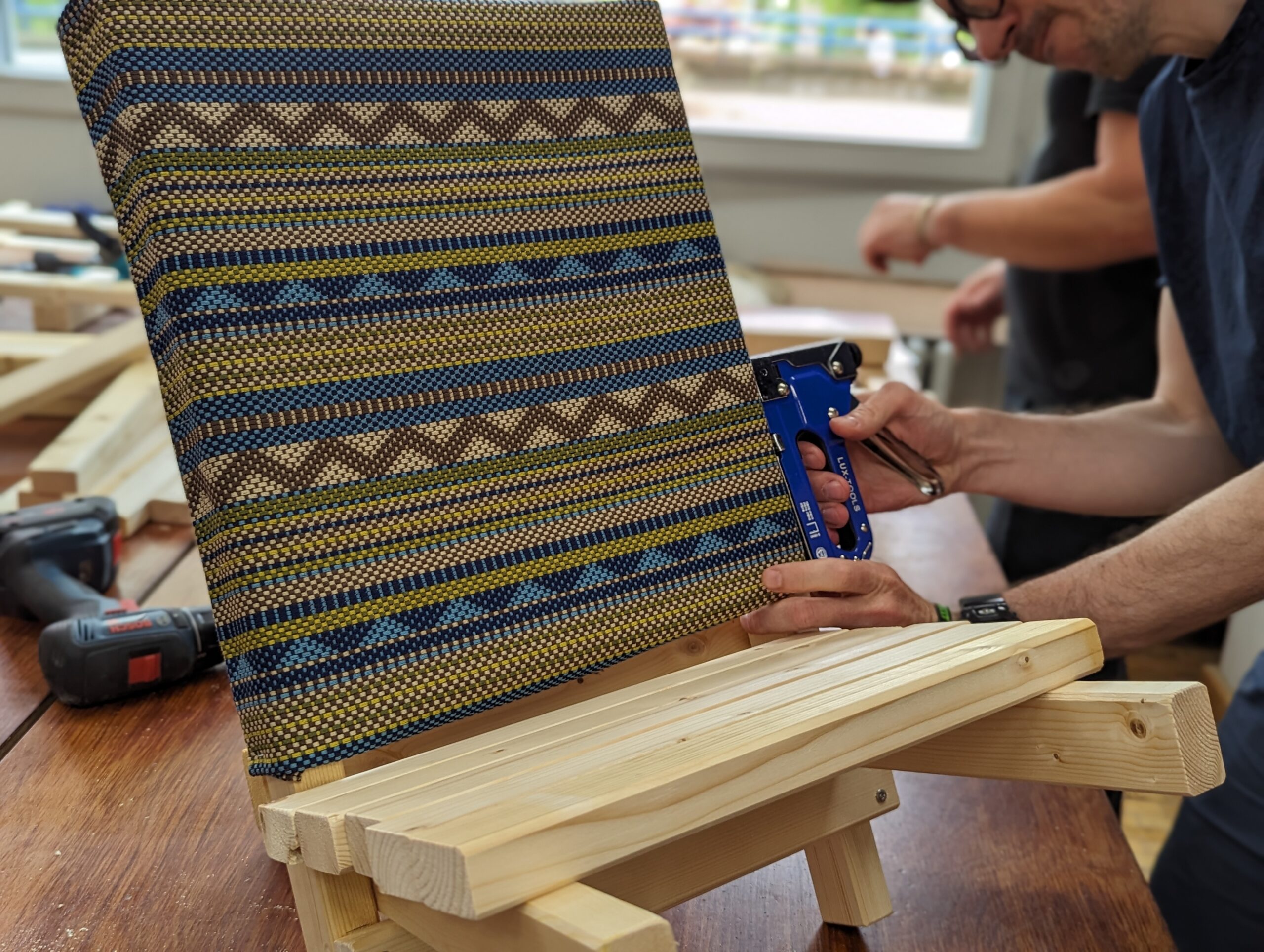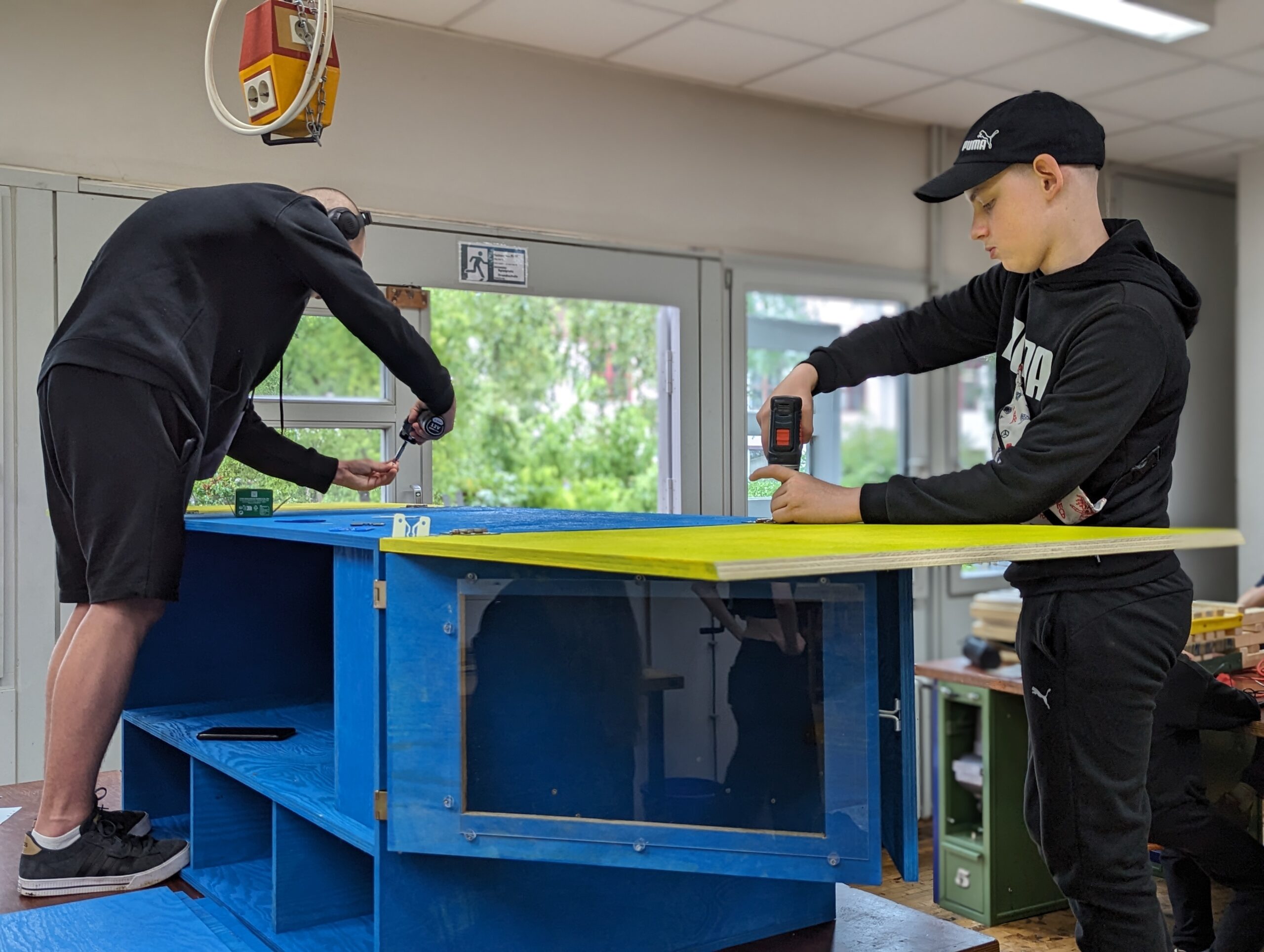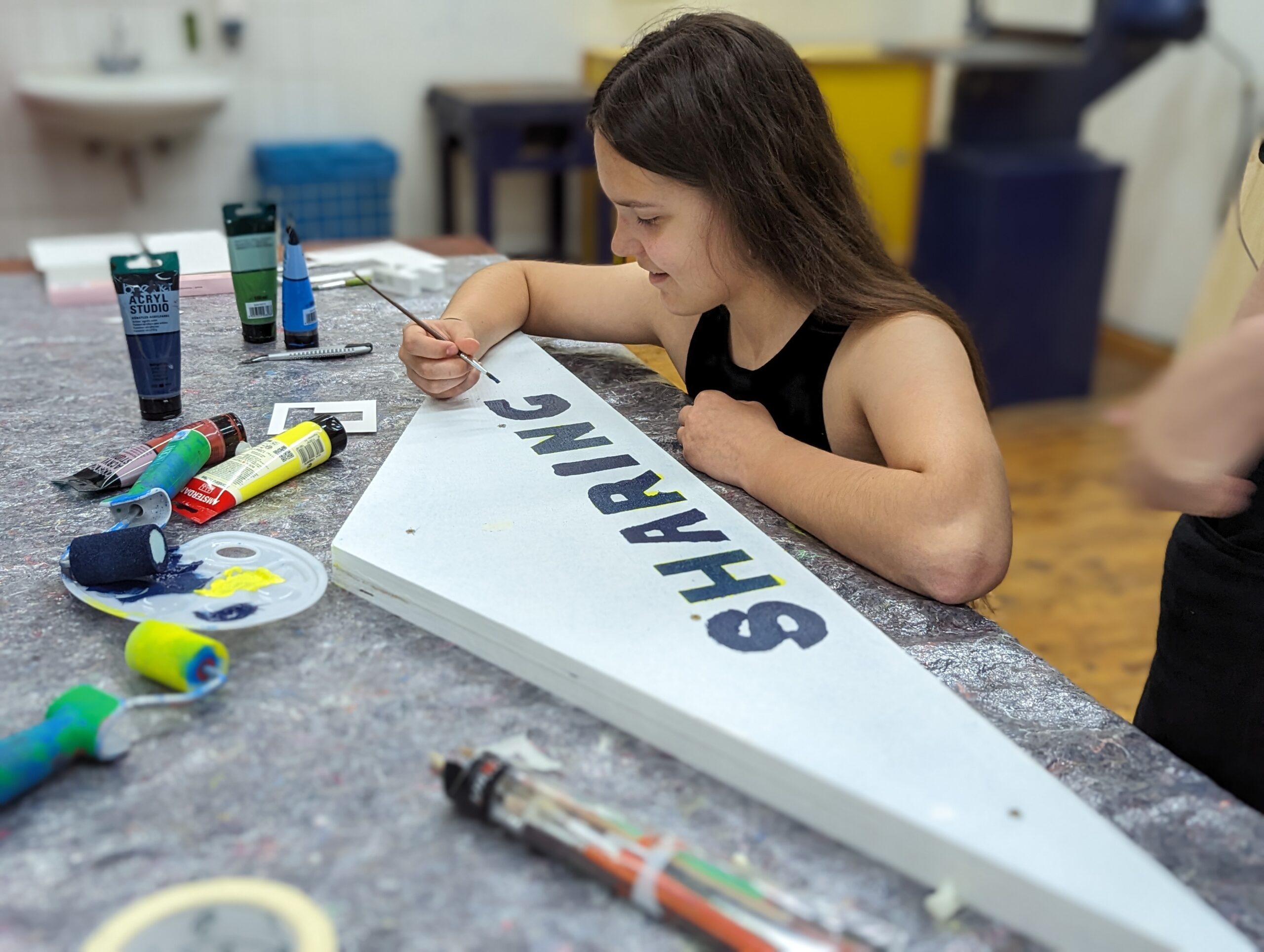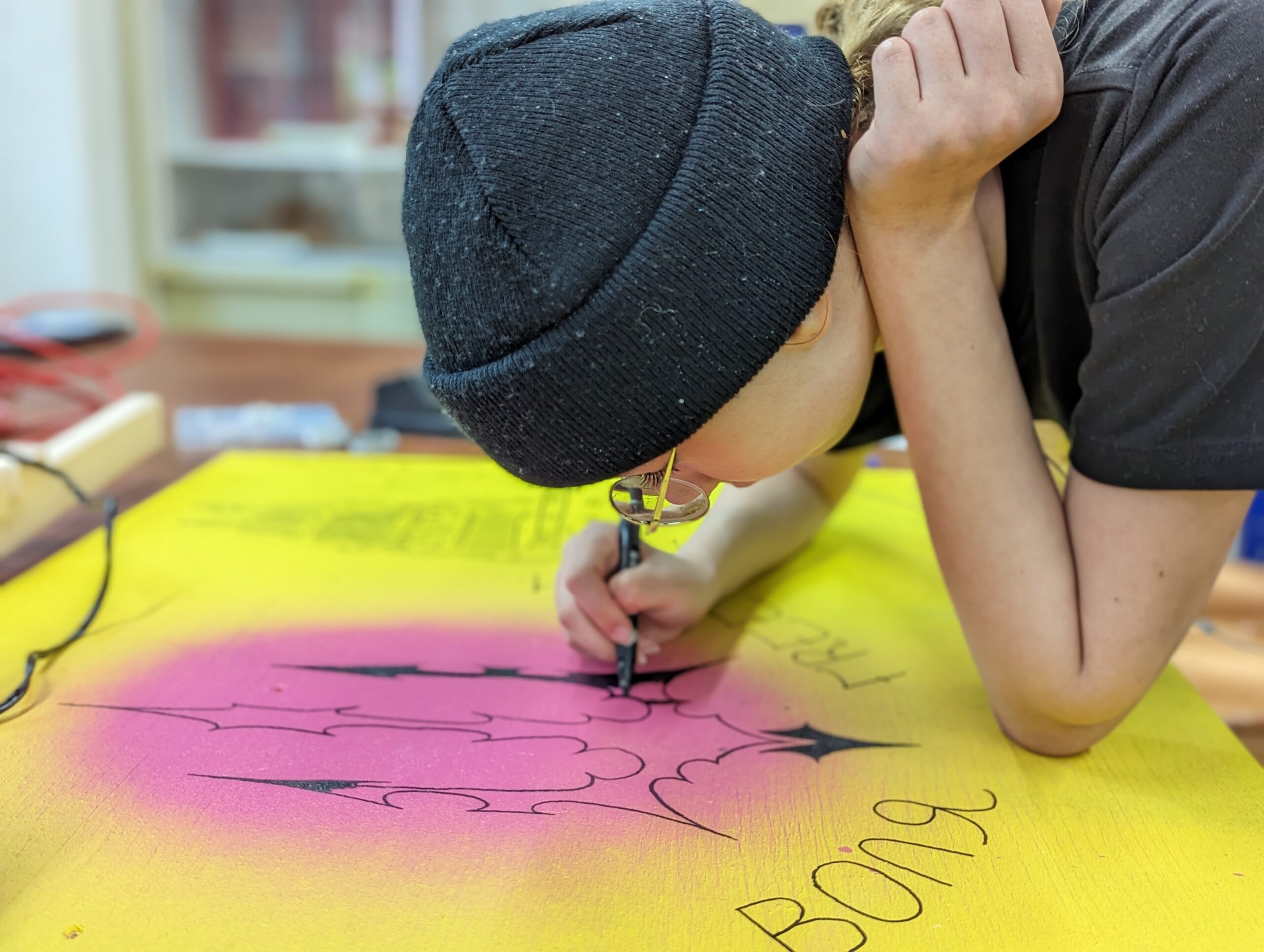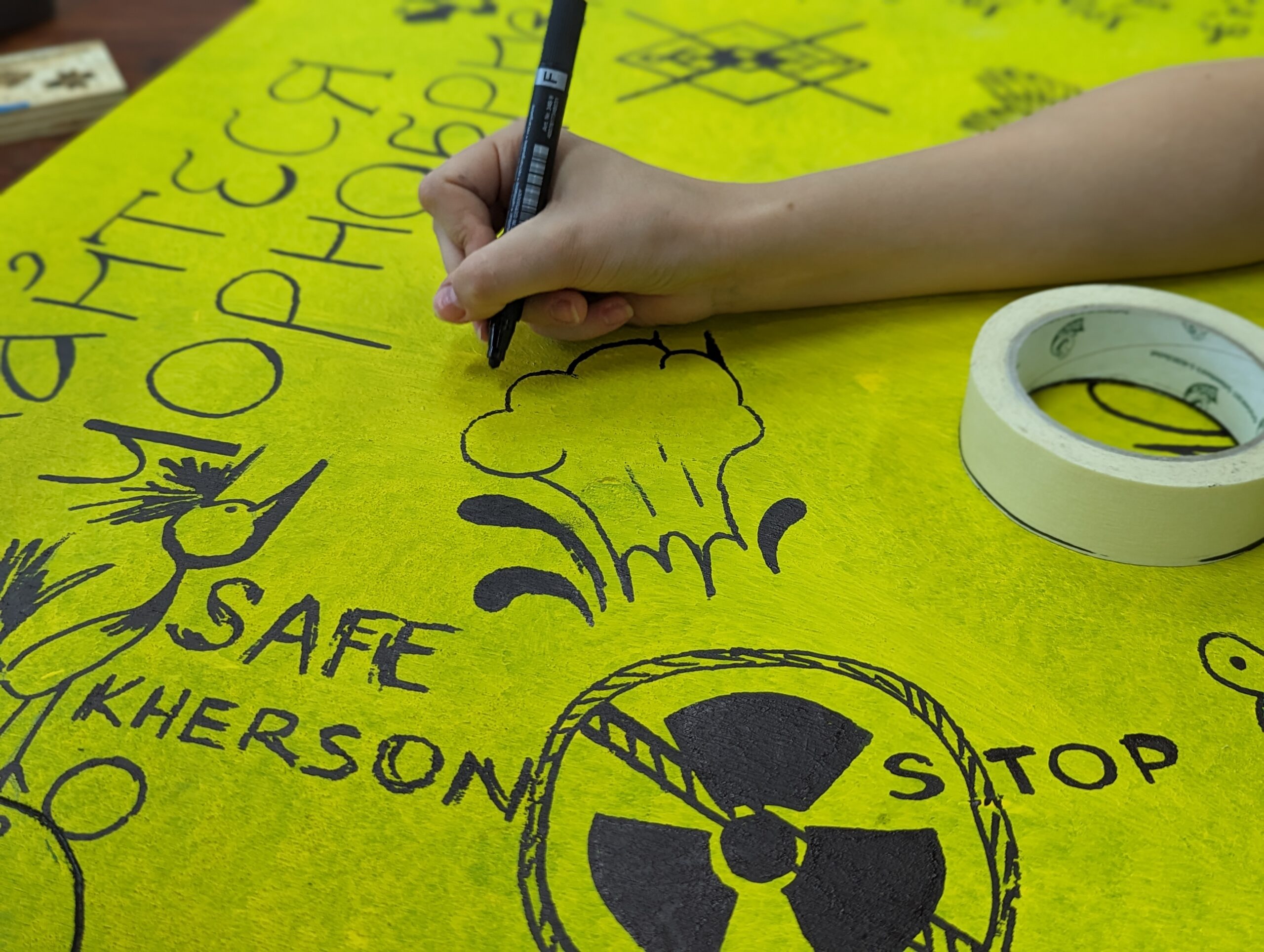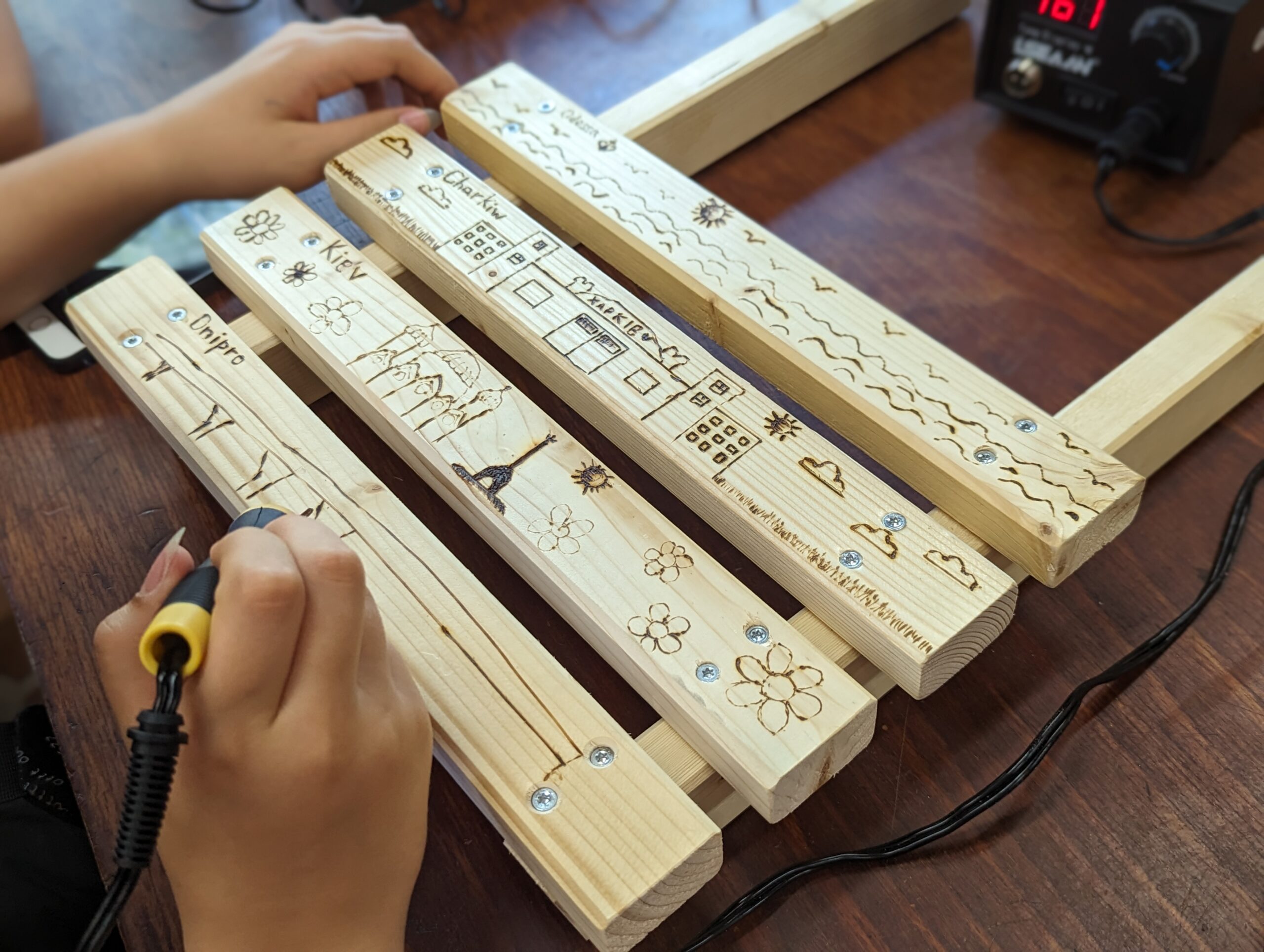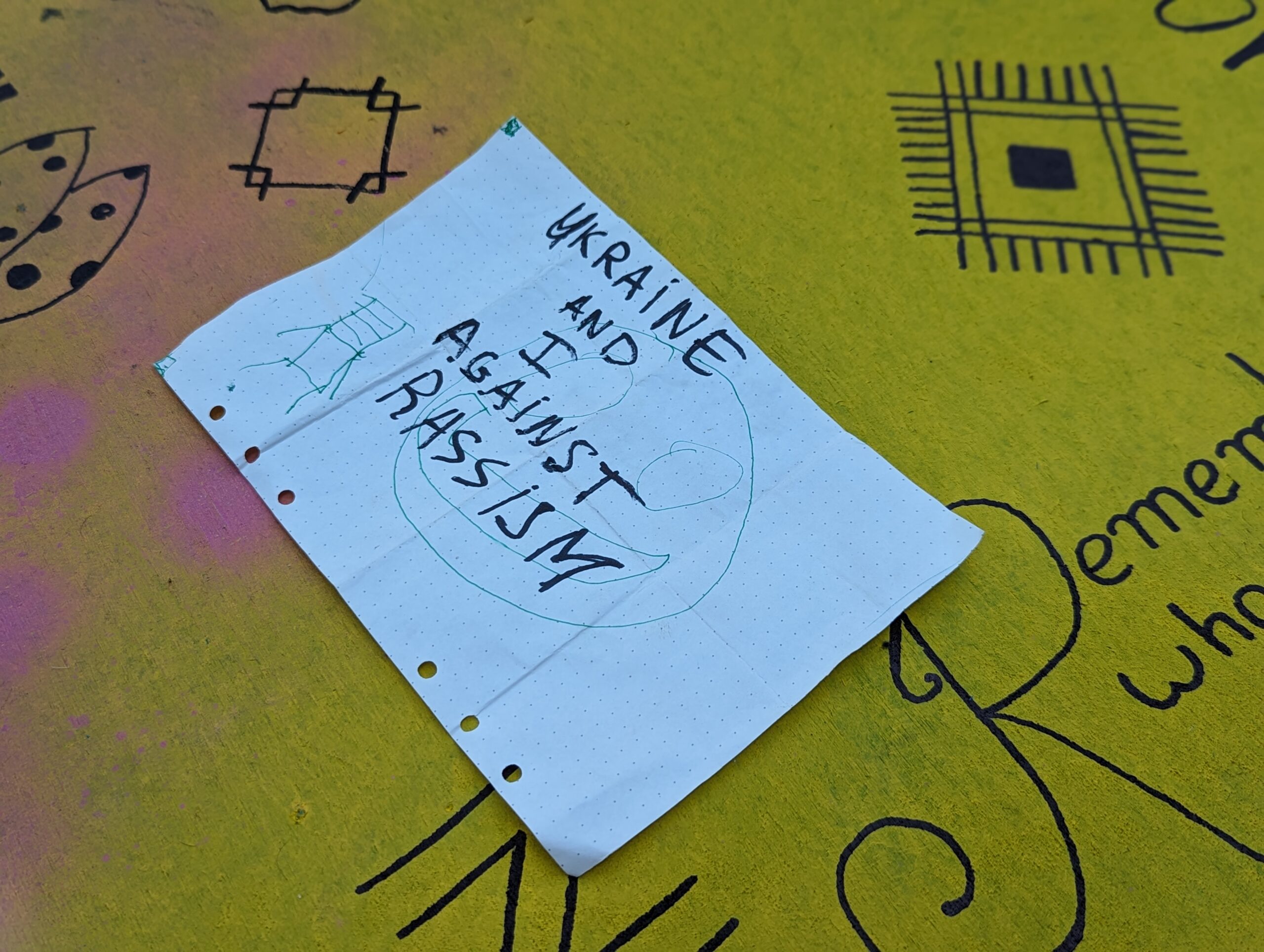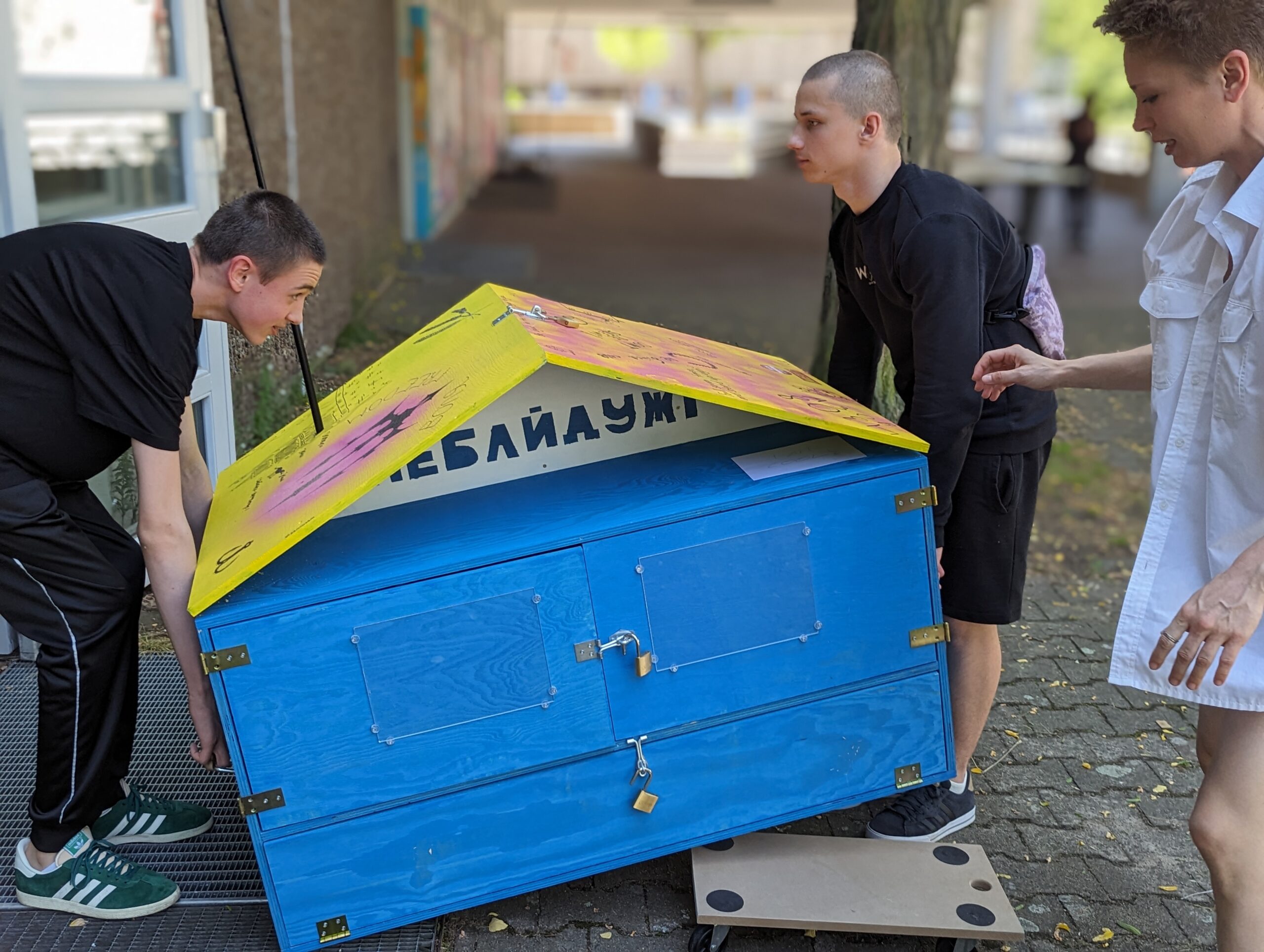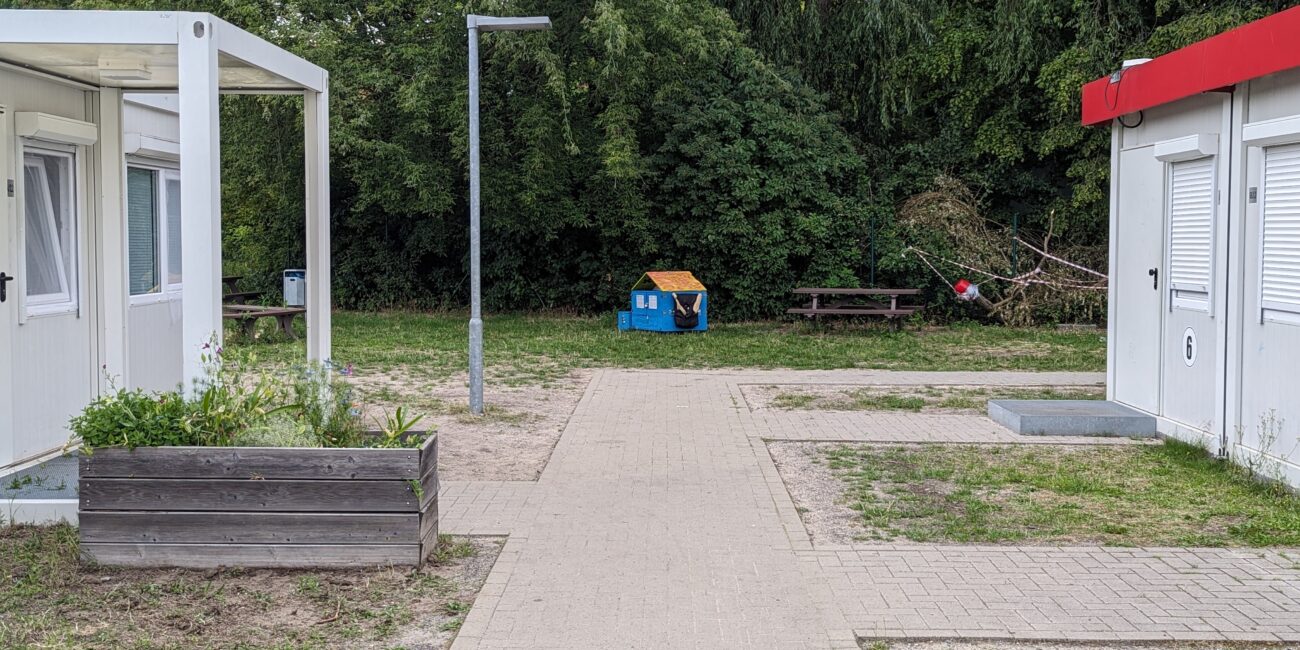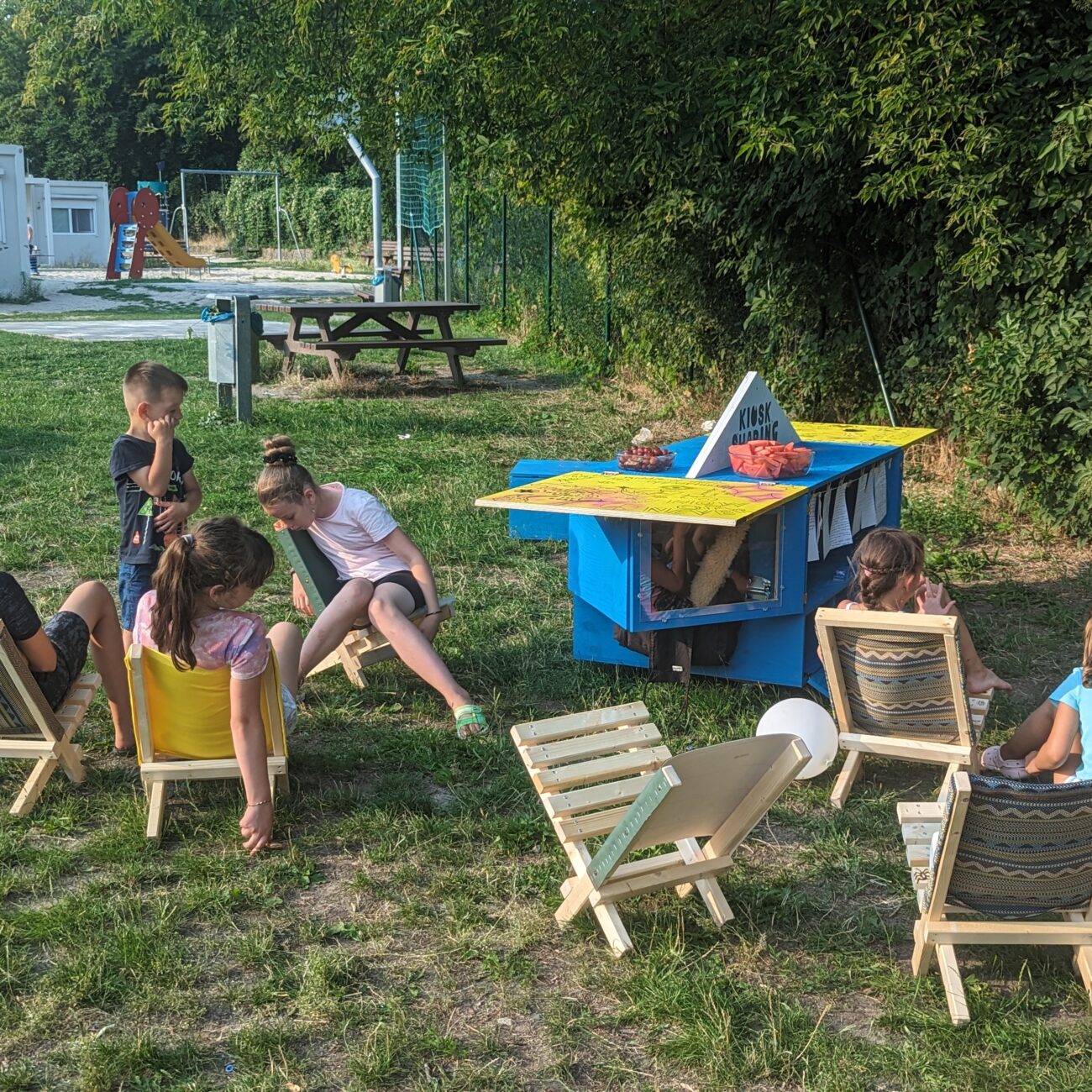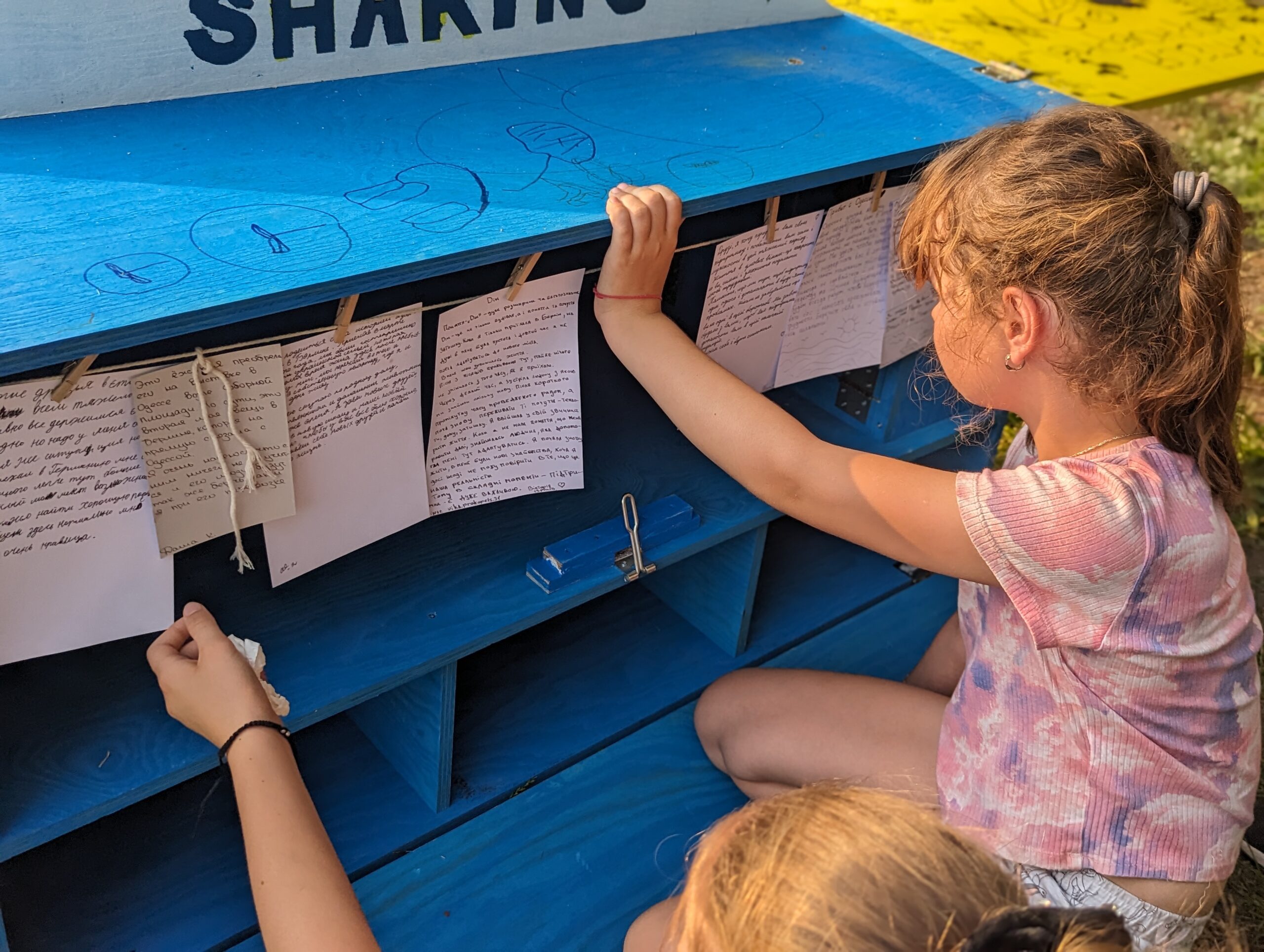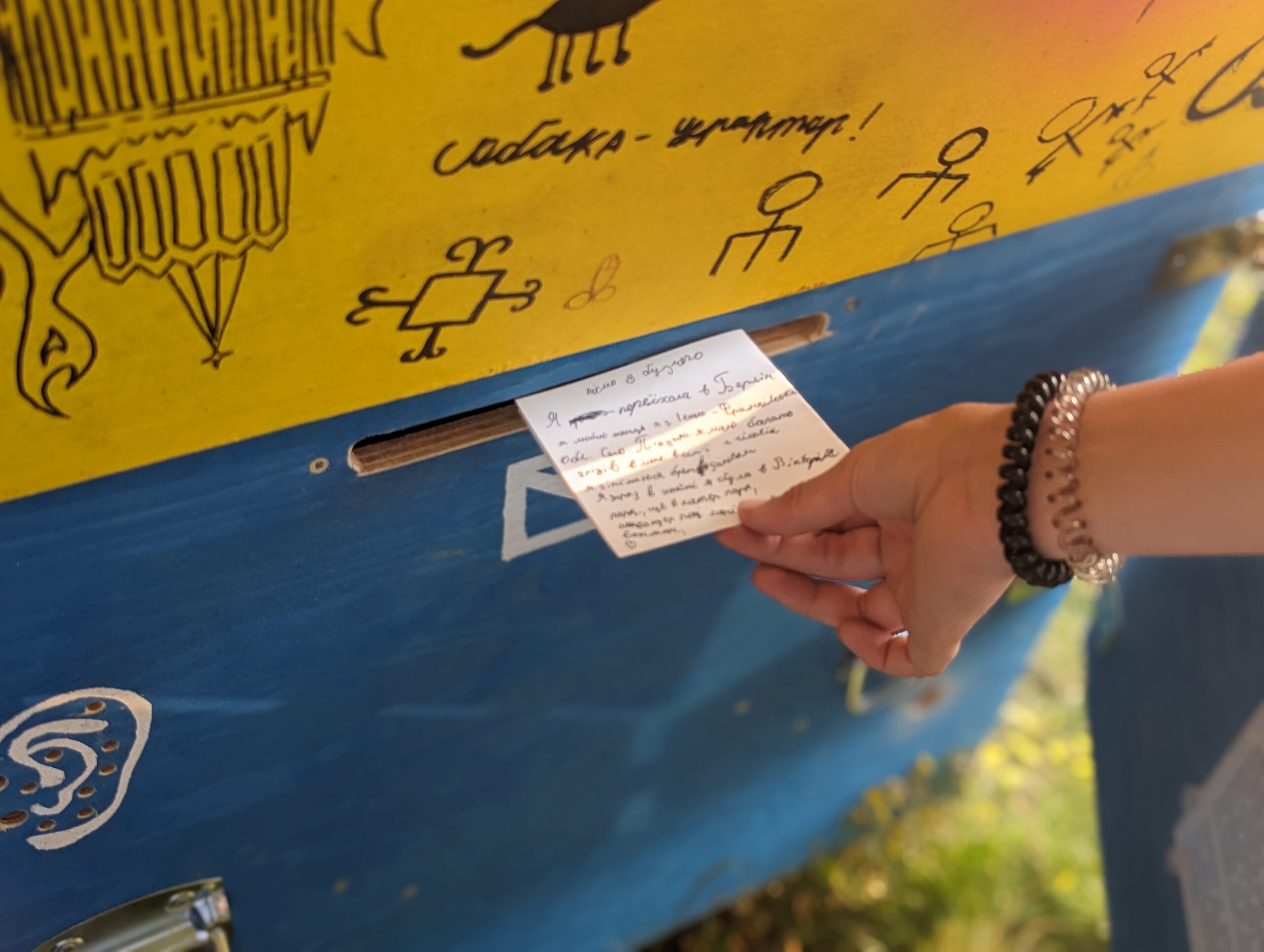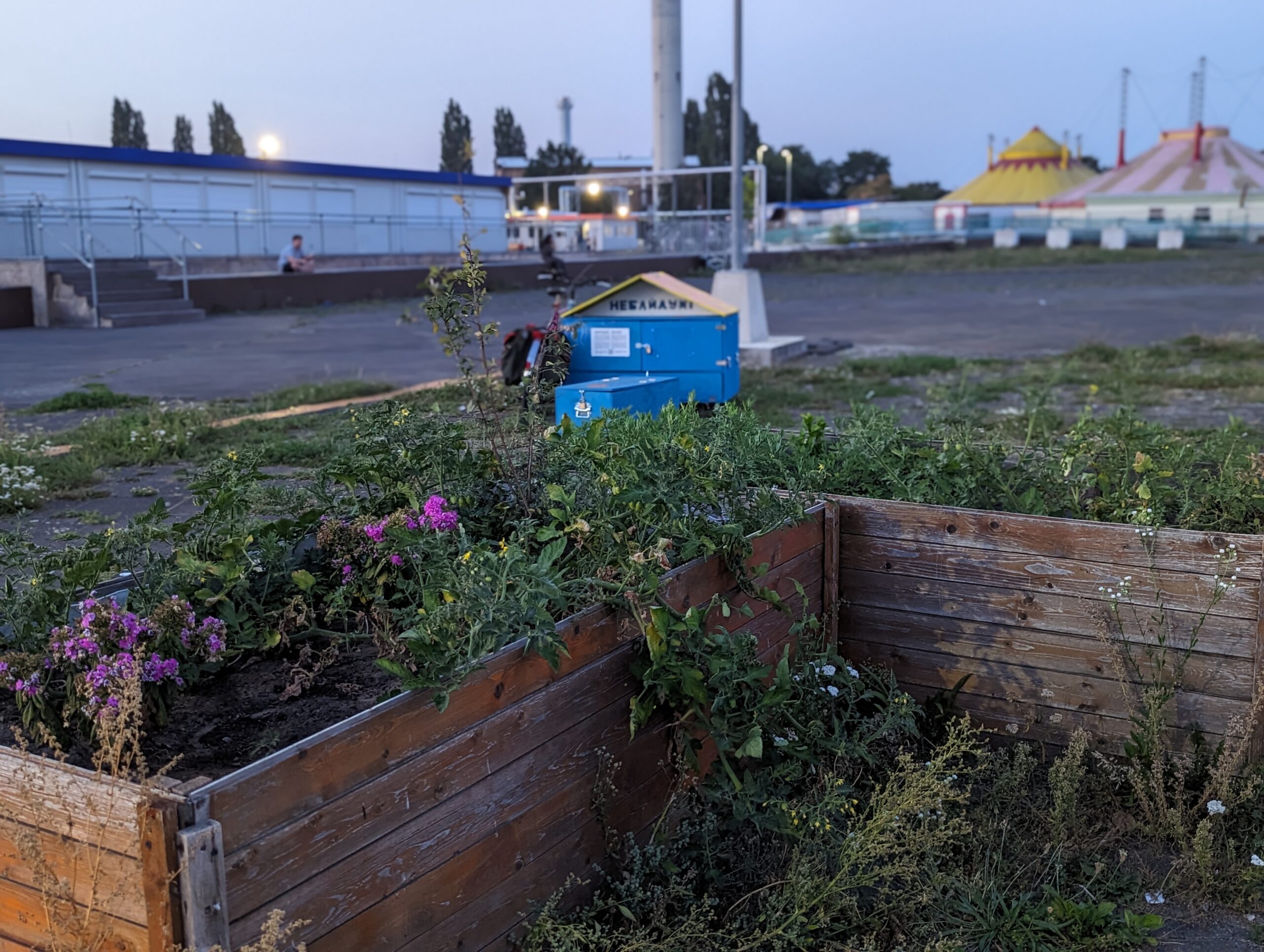Together with a group of young Ukrainians we designed and built a mobile Sharing Station.
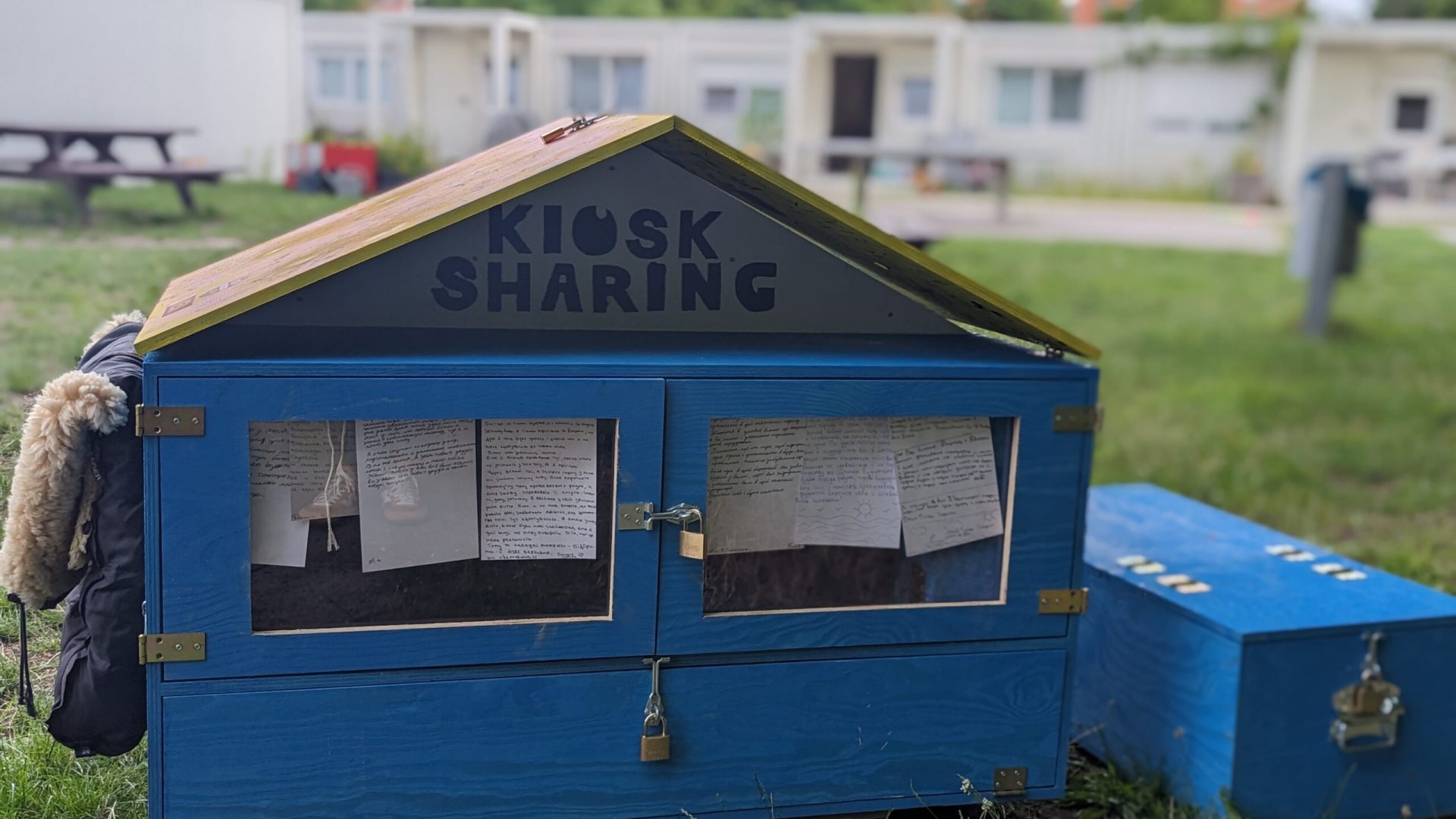
Together with a group of young Ukrainians from the welcoming class at the Carl-von-Ossietzky Gemeinschaftsschule, we designed and built a mobile Sharing Station. In the planning stages of the project, we explored with the young people topics such as sharing, community, mutual care and responsibility. When asked what they would like to share, we found that many of them mentioned things they had received from volunteers when they arrived in Germany, including toiletries, toys, clothes, pet supplies and food. These individual experiences of the young people served as a starting point for their concepts.
Various concepts for the Sharing Station were developed during the actual working process. As well as being a kind of mini-hotel, where people could rest, charge their mobile phones, repair their bikes and have a quick meal, it was to be a first aid station with a medicine box for emergencies, access to clean water and shelter for people without a place to stay. The station would also act as a swap shop, with shelves for clothes, toys and books. The design was to be reminiscent of a tree house used as a meeting place for friends in Ukraine. The station would also provide a home for insects and birds, and serve as a drinking and feeding station for dogs, which need special support as companions worthy of protection.
The group’s shared vision was to embody the idea of home, based on their own experiences of displacement and forced migration. The result was a Sharing Station that resembled a tree house and included an area for personal letters with secret wishes. Part of the kiosk was designed as a swap shop, while the other side served as a showcase for small exhibitions. Handmade Swedish chairs invited people to linger and chat, while a compartment for bicycle racks and tools made it possible to repair bicycles. The roof of the station could be opened to form a table, which not only provided space for communal meals or creative activities, but also a surface for statements and protest ideas that young people wanted to share with others. It is a space for dialogue and rebellion – a public space that is transformed by the people who use it.
This construction travelled on a cargo bike from fLotte Berlin to various refugee shelters. There it became a meeting place for people, changing its function according to the conditions of the space and the needs of the residents.
